I woke up recently and was having a dream about the pandemic. That gave me the idea that I should write to you about what to do if you get sick when you have diabetes. This is not specific to COVID19, but is recommended anytime you are sick.
But first, speaking of COVID 19, the emergency warning signs are: difficulty breathing or shortness of breath, persistent pain or pressure in the chest, new confusion or inability to arouse, and bluish lips or face. Continue to follow the CDC and local guidelines. I pray none of you get infected.
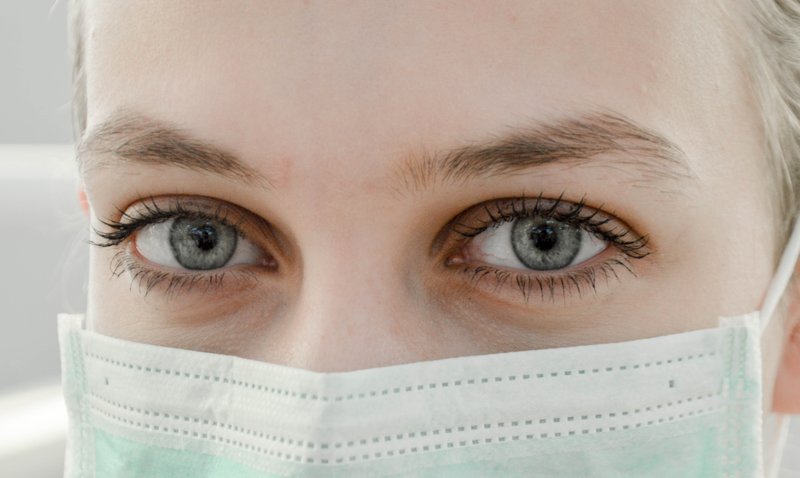
Getting back to our topic, do you know there are specific things people with diabetes should do if they get sick?
Here’s a “James story”. (“James stories” are actual accounts of my experiences concerning my first husband’s struggle with diabetes. Eventually these struggles led to his untimely death because neither of us knew at the time how to deal with or avoid these problems).
James felt like he had been hit by a Mack truck. Crippled with a pounding headache, and feeling nauseous, he laid on the sofa without moving. After two days without improvement, I tried everything I could to get him to go to the doctor. Money was always tight, and being uninsured he hated to go. He refused this time as well.
I would go to work and come home and find him on the sofa in the same approximate position as when I left. I didn’t know what was happening but it scared me. I didn’t want to go to sleep for fear something would happen to him during the night. It did. In the middle of the night he called out for help. He had fallen and he couldn’t breathe. He asked me to get him some oxygen. I started out the door to get some and realized that was impossible.
Finally he agreed I could call 911. I will never forget the relief I felt seeing the ambulance come around the corner. I wasn’t alone, scared and helpless anymore.
The paramedics told James they would give him oxygen but he had to go to the hospital. Feeling desperate not being able to catch his breath he said OK.
I learned about diabetic ketoacidosis, DKA for short. DKA Is a medical emergency that can lead to coma and death. It happens when there is a critical shortage of insulin in the body. James had Type 1 diabetes and made no insulin so he had to inject insulin every day to live. Because he was sick and nauseated and couldn’t eat he decided he should not take any insulin.
He kept feeling bad and really sick so he kept not taking insulin. He also didn’t have a meter to check his blood sugar so he had no idea of his glucose level.
He could’ve died that day. James was hooked up to IV insulin and fluids. As soon as he thought he would live he wanted out of that hospital.
I met my first certified diabetes educator that day. She was a nurse and gave me advice and her phone number to call if I needed anything after we got home. I was so relieved I had a person to help us. I bought a glucose meter that day and began to learn about diabetes.
DKA happened because James went days without insulin. His glucose was elevated but he didn’t know it. He guessed wrong and thought it was low since he wasn’t eating. He didn’t take insulin to bring his glucose down. He became dehydrated which made his sodium, potassium, and phosphorus get out of whack. He had ketosis which happens when you don’t have any insulin on board to move blood sugar into your cells for energy. As a backup, the body will break down fat for fuel which produces ketosis.
Symptoms of ketosis are “fruity” or acetone breath, nausea, vomiting, and abdominal pain. He couldn’t breathe because his blood had gotten too acidic.
This all could have been prevented if we were educated. People with Type1 diabetes are much more likely to develop DKA than people with Type 2. However understanding what illness is likely to do to your glucose, and what to do about it, can help you get better quicker. Everyone with diabetes should understand Sick-Day Guidelines. We’ll get to that, but first, two things:
1. When you are sick your glucose will likely go up because stress causes your liver to release glucose into your bloodstream. Even if you don’t eat much your glucose will probably be elevated. It is important to continue to take your diabetes medication unless you have been instructed by your healthcare provider (HCP) to do otherwise. I recommend talking to your HCP at your next visit, before you are sick, about any changes you should make to your medications in case of illness. Also ask about aspirin, cold or flu remedies that would be best to use if needed.
2. The other thing I want you to know is that you still need to consume carbohydrates spaced throughout the day when you are sick. If you are unable to eat regular food it is a good idea to drink carbohydrate or eat soft foods. For instance if your meal plan has 45 g of carbs per meal but you are nauseated and can’t eat, one option is to have 12 ounces of regular Ginger ale which has 36 g of carbohydrate and five saltines which has 10 g. Like always, spacing carbohydrate out throughout the day can help level out your glucose. I know that sounds weird but it has to do with less glucose coming from the liver.
Here are Sick Day Guidelines for People with diabetes.
Hydration
- Drink at least 8 oz of water or sugar free caffeine-free liquids very hour
Glucose Monitoring - Check every 2-4 hours while glucose is elevated or until symptoms subside
Ketones (If Type 1 diabetes, or instructed to do so by your health care provider) - Check every 4 hours or until negative
Medication
- Continue diabetes pills as prescribed (unless your HCP tells you otherwise).
Do not stop or hold insulin. Adjust insulin doses to correct high glucose levels according to your sick day plan.
Talk to your HCP before taking over-the-counter medications like aspirin, cough medicine, decongestants.
Food and Beverages - Stick to your meal plan as much as possible. Switch to soft or liquids foods as needed.
Aim for 50 grams of carbohydrate every 3-4 hours (150-200grams a day).
Here are some items you might like when sick. Each of these items has 15 grams of carb:
1/2 cup fruit juice (apple, orange, pineapple)
1/2 cup regular soft drinks (not diet)
1/2 cup regular jello
1 double ice pop
1/2 cup ice cream
1 cup soup
1 cup sports drink
1 slice toast
6 crackers
When to Contact your HCP
- Your blood sugar is under 70 mg/dl
- Your blood sugar is over 240 for 6 hours or more
- You can’t eat or drink for 4 hours or more
- You have a fever 101.5 or higher
- Your illness lasts over 24 hours
- You have severe pain in your stomach, chest pain or trouble breathing
- You have been vomiting or have diarrhea for more than 6 hours
- You have moderate to large amount of ketones in your urine for more than 6 hours
If you know someone with diabetes that this may help, please share.
If you liked this article, you might like 4 Tips for Managing Diabetes During Chaos and Stress
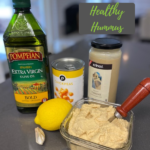

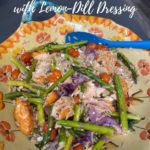
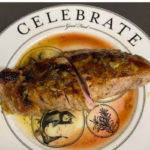
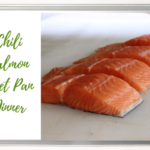
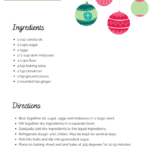
Leave a Reply